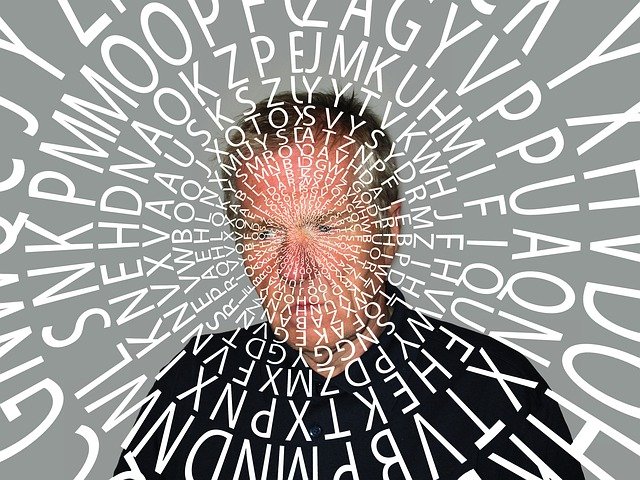
By Pamela Cruz. Peninsula 360 Press [P360P] .
*The number of Latinos with Alzheimer's will increase to 1.3 million by 2050.
"What if I wake up and don't recognize my husband? What if I don't know where I am or don't even recognize myself in the mirror? When will I stop being me? Is the part of my brain responsible for my personal and unique "me" vulnerable to disease? Or is my identity something that transcends the neurons, proteins and faulty molecules of my DNA? Are my spirit and soul immune to the ravages of disease? Alzheimer's? I think so.
So says the doctor in Neurological Sciences from Harvard University and writer of the book "Always Alice", which was later taken to the big screen by the hand of the talented actress Julianne Moore, Oscar winner after playing a successful academic who develops Alzheimer's early.
What would happen if all your memories disappeared from your mind and you had no choice but to move on, unable to stop it? That is the big question for those who are diagnosed with Alzheimer's on a daily basis.
What is Alzheimer's?
Alzheimer's is a type of dementia that affects memory, thinking and behavior. Symptoms usually develop slowly and worsen over time, until they are so severe that they interfere with daily tasks, says the Alzheimer's Association in the United States.
Alzheimer's disease is responsible for 60 to 80 percent of dementia cases.
The condition is not a normal feature of aging. The most important known risk factor is increasing age, and most people with the disease are older than 65.
But Alzheimer's isn't just a disease of old age. Approximately 200,000 Americans under the age of 65 have early-onset Alzheimer's disease - also known as early-onset Alzheimer's disease.
As a progressive disease, Alzheimer's gets worse over time. Symptoms of dementia gradually worsen over the years. In its early stages, memory loss is mild, but in the final stage, people lose the ability to carry on a conversation and respond to their surroundings.
Alzheimer's is the sixth leading cause of death in the United States.
People with this disease live an average of eight years after symptoms become evident, but survival can range from four to 20 years, depending on age and other health conditions.
There is currently no cure for Alzheimer's, but treatments for the symptoms are available and research continues. While current treatments for the condition can't stop the disease from progressing, they can slow the worsening of symptoms for a time and improve the quality of life for people with the disease and their caregivers.
The association details that the Latino community faces a higher risk of Alzheimer's disease and other dementias because - like the general population in the country - they live longer but have higher rates of cardiovascular risk factors.
The number of Latinos with Alzheimer's living in the United States is expected to increase to 1.3 million by 2050.
According to the Centers for Medicare and Medicaid Services, 8.7 percent of San Mateo County residents have Alzheimer's disease.
10 warning signs
1.- Changes in memory that complicate daily life
2.- Difficulty in planning or solving problems.
3.- Problems performing regular tasks at home, at work, or in your free time.
4.- Disorientation of time or place.
5.- Difficulty understanding visual images and how objects relate to each other in the environment.
6.- New problems with the use of words in speech or writing.
7.- Placing objects out of place and the lack of ability to review facts and tasks.
8.- Diminished or lack of good judgement
9.- Loss of initiative to take part in work or social activities.
10.- Changes in mood or personality
If you notice any of the 10 warning signs of Alzheimer's in yourself or someone you know, don't ignore them. Schedule an appointment with your doctor because through early detection, you can explore treatments that may alleviate symptoms.
Stages
The stages that follow provide a general idea of how abilities change once symptoms appear and should only be used as a general guide. They are separated into three different categories: mild Alzheimer's disease, moderate Alzheimer's disease and severe Alzheimer's disease. Keep in mind that it can be difficult to place a person with Alzheimer's into a specific stage, as the stages overlap.
Early-stage mild Alzheimer's disease?
- Problems finding the right word or name
- Difficulty remembering names when introduced to new people
- Difficulty performing tasks in social or work settings.
- Forgetting something you just read
- Losing or misplacing a valuable item
- Having more trouble planning or organizing
Moderate ?mid-stage? Alzheimer's disease
At this point, others may notice symptoms, which may include:
- Forgetting events or personal history information
- Feeling moody or withdrawn, especially in socially or mentally demanding situations
- Not being able to remember your own address or phone number, or the school or college you graduated from
- Confusion about current location and date
- Need help choosing the right clothes for the season or occasion
- Trouble controlling the need to go to the bathroom
- Changes in sleep patterns, such as sleeping during the day and being restless at night
- Increased risk of disorientation and getting lost
- Personality and behavior changes, such as suspiciousness and delirium, or repetitive behavior such as hand-wringing or cutting papers
End-stage severe Alzheimer's disease?
At this stage, people can:
- Needing assistance all the time with daily activities and personal care
- Losing track of recent experiences and the facts surrounding them
- Experiencing changes in physical abilities, including the ability to speak, sit, and eventually swallow
- Having more difficulty communicating
- Becoming vulnerable to infections, especially pneumonia
You may be interested in: FDA Gives Green Light to Alzheimer's Drug


